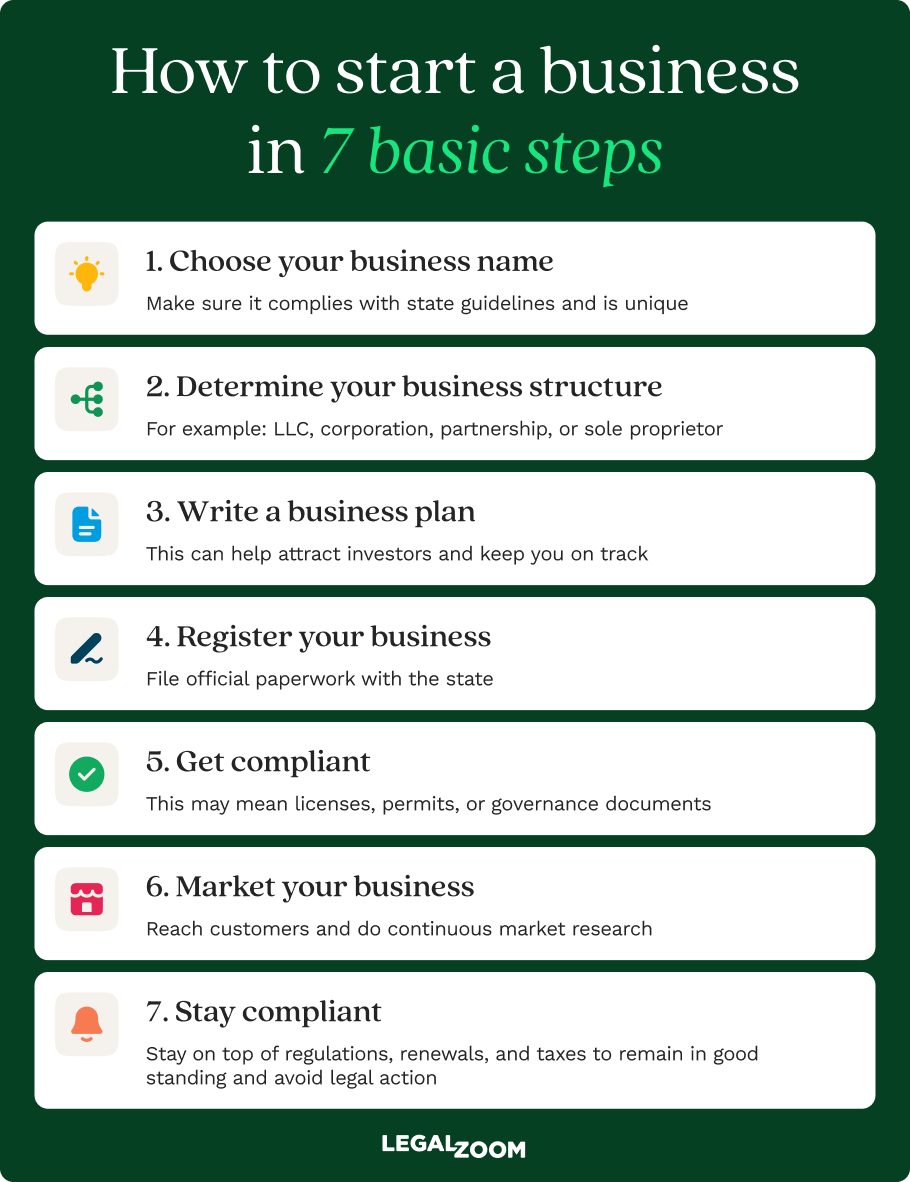Starting a business without a business plan is a little like driving without a map—you may get where you're going eventually, but you're much more likely to make mistakes and have problems along the way.
Many entrepreneurs mistakenly assume they only need a business plan if they plan on raising capital for their business, but that’s not necessarily the case. A solid business plan will demonstrate the viability of your business idea and help you lay the foundation for long-term success. But before you jump in, it may be helpful to get a better idea of what a successful business plan looks like and how to draft one yourself.

What is a business plan?
You need more than just a good idea to start a business. You need a clear strategy for how to set your idea in motion and how you’ll measure success and plan for growth. A good business plan outlines exactly that, helping you to define your goals, identify potential challenges, and design a roadmap for how you’ll achieve your objectives.
The exact contents of your business plan may vary depending on your goals and the type of business you intend to open. But generally speaking, you’ll want to define a clear mission or objective, choose a business structure, identify your target market and demographics, and develop a concrete strategy for how you’ll market your business to your audience.
Why having a business plan matters—even if you're not raising money
If you're applying for a loan or seeking outside investors for your business a business plan is a must-have document. But you don't have to be raising money to benefit from having one.
Creating a business plan forces you to examine your business idea from multiple angles, test your assumptions, and develop realistic expectations about costs, revenue, and growth. This process often reveals opportunities you hadn't considered and obstacles you need to address before they derail your progress.
Here are five specific reasons why you should make a business plan, even if you’re not looking for help funding your small business:
1. It puts you in an investor's mindset
Your business represents an investment of time, money, and emotional energy. A business plan helps you evaluate whether this investment is likely to generate the returns you expect. By analyzing market demand, competition, and financial projections, you can determine if your business idea has genuine profit potential or if you need to refine your approach.
This investor perspective helps you make objective decisions about your business rather than relying solely on passion and optimism. If your business plan reveals that profitability is unlikely or would require unrealistic conditions, it's better to discover this during the planning phase than after you've committed significant resources.
2. It helps ground your vision in reality
Enthusiasm for your business idea is essential, but it must be balanced with realistic assessment of challenges and opportunities. A business plan forces you to address difficult questions:
- Who are your competitors and how will you differentiate yourself?
- What skills and resources do you need to succeed?
- How much money will you realistically need to start and sustain operations?
By confronting these questions honestly, you build your business on a foundation of facts rather than assumptions. This realistic approach helps you prepare for challenges, allocate resources effectively, and set achievable milestones for growth.
3. It helps you set and attain measurable goals
Your business plan functions as a roadmap, outlining specific objectives and the steps needed to achieve them. These goals might include revenue targets, customer acquisition numbers, product development milestones, or expansion plans. Having written goals makes it easier to track progress, identify when you're off course, and make necessary adjustments.
When daily operations become hectic, your business plan reminds you of your long-term vision and helps you prioritize activities that move you toward your objectives. This focus is particularly valuable for new business owners who face countless decisions and competing priorities.
4. It aligns stakeholders around a shared vision
If you have business partners, a business plan helps ensure everyone shares the same vision and expectations. The planning process reveals different perspectives on goals, strategies, and priorities, giving partners an opportunity to resolve disagreements before they become serious conflicts.
Even solo entrepreneurs benefit from this alignment process. Family members, advisors, and early employees will be more supportive when they understand your goals and see evidence of thoughtful planning. A clear business plan also makes it easier to communicate your vision to potential customers, suppliers, and other stakeholders.
5. It can identify creative solutions to challenges
Every new business faces obstacles, from competitive pressure to supply chain issues to changing market conditions. A business plan helps you anticipate these challenges while you still have maximum flexibility to develop creative solutions. It's much easier to adjust your product offerings, marketing strategy, or target market during the planning phase than after you've signed leases, hired employees, and committed to specific approaches.
This proactive problem-solving approach can save you significant time and money while positioning your business for long-term success.

Business plan FAQs
Can I open a business without a business plan?
You may have a hard time attracting investors without a well thought-out business plan. But if you’re not planning to raise money, you don’t technically need to draft a plan before going into business. However, taking the time to create one may help you avoid costly or time consuming mistakes down the road.
What are common mistakes when making a business plan?
One of the worst business plan mistakes is simply not having one! Other common pitfalls include not taking time to do adequate market research, choosing the wrong business structure, and underestimating your startup costs or cash flow needs. However, many of these mistakes may be avoided if you invest an adequate amount of time and research into your plan. Commit yourself to the process and try to avoid cutting corners during your planning phase.
Do I need to draft my business plan by myself?
You can write your own business plan, but it can be beneficial to have help from a partner or CPA. If you’re drafting a business plan for the first time, you can also find helpful templates online that will guide you through the process and help you understand what you need.
Enlisting a service like LegalZoom can also be an important aspect of your business plan. LegalZoom’s business formation services can help you manage tasks such as drafting operating agreements, applying for and maintaining necessary licenses and permits, and registering your business name. This makes it easier for you to focus on other essential tasks like conducting market research and creating a strategy for growth.
Jane Haskins, Esq. contributed to this article.

